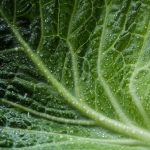So, you’re planning a trip to Zimbabwe, and one of the burning questions on your mind is whether you can safely drink tap water there. Well, let’s get straight to the point – the safety of tap water in Zimbabwe has been a topic of concern for many years. While efforts have been made to improve water quality, it is generally recommended to exercise caution and opt for bottled water or use water purification methods. In this article, we’ll explore the reasons behind this caution, the challenges faced by the country’s water supply system, and the precautions you can take to ensure a safe and hydrated journey.
Water quality in Zimbabwe
Overview of water quality
Water quality in Zimbabwe is a major concern as the country faces numerous challenges in maintaining safe and clean drinking water for its population. The availability of safe drinking water is essential for the well-being and health of communities, but unfortunately, many Zimbabweans do not have access to clean water sources.
Water contamination issues
One of the main issues with water quality in Zimbabwe is contamination. Contaminants such as bacteria, viruses, and chemicals can infiltrate water sources due to various factors, including inadequate sanitation infrastructure, waste disposal practices, and pollution. This contamination poses significant risks to the health of individuals who consume the water.
Common waterborne diseases in Zimbabwe
Due to water contamination, Zimbabwe experiences a high prevalence of waterborne diseases. Some of the common waterborne diseases in the country include cholera and typhoid fever. These illnesses can cause severe diarrhea, vomiting, and dehydration, and they are particularly dangerous for those with weakened immune systems, such as children and the elderly.
Tap water in Zimbabwe
Sources of tap water
Tap water in Zimbabwe primarily comes from surface water sources such as rivers, lakes, and reservoirs. In some areas, groundwater is also used as a source of tap water. However, the quality of these water sources is often compromised due to pollution and contamination.
Treatment processes
To make tap water safe for consumption, treatment processes are employed. These processes include filtration, disinfection with chlorine, and sometimes additional steps such as coagulation and sedimentation. Despite these treatment processes, the effectiveness and reliability of water treatment in Zimbabwe can vary across regions and municipalities.
Regulations and monitoring
Water quality regulations and monitoring play a crucial role in ensuring the safety of tap water. In Zimbabwe, the Environmental Management Agency and the Ministry of Health and Child Care are responsible for establishing and enforcing regulations related to water quality. However, the implementation and enforcement of these regulations can be challenging, especially in more remote areas where resources are limited.
Is tap water safe to drink?
Challenges with tap water safety
While efforts are made to treat tap water, there are still significant challenges with ensuring its safety. Infrastructure limitations, lack of resources, and inadequate monitoring and enforcement can contribute to the compromised quality of tap water in many parts of Zimbabwe. Additionally, outbreaks of waterborne diseases are often indicative of systemic issues in the water supply system.
Factors affecting water quality
Several factors can impact the quality of tap water in Zimbabwe. Poor sanitation practices, inadequate waste management, industrial pollution, and agricultural runoff are all contributing factors to water contamination. Climate change and extreme weather events can also affect water quality by causing flooding and mixing pollutants into water sources.
Risks and precautions
Consuming tap water in Zimbabwe carries certain risks, especially considering the high prevalence of waterborne diseases. While treatment processes aim to remove or kill harmful contaminants, individuals should take precautions such as boiling tap water before drinking or using it for cooking. Additionally, using water filters or opting for bottled water may provide an added layer of protection against potential contamination.
Alternatives to tap water
Bottled water
Bottled water is widely available in Zimbabwe and is considered a safer alternative to tap water. However, it is important to ensure that the bottled water is from a reputable source and meets quality standards. Consumers should look for water that is properly sealed and has not expired.
Filtered water
Using water filters can be an effective way to improve the quality of tap water. Filtration systems can remove contaminants and improve taste and odor. It is important to choose filters that are designed to remove specific types of contaminants, such as those certified by reputable organizations.
Boiled water
Boiling tap water is a traditional method of purifying water. This process kills most types of bacteria and viruses, making the water safe for consumption. Boiled water should be allowed to cool before drinking or using it for cooking.
Access to safe drinking water
Rural areas
Access to safe drinking water is a significant challenge in rural areas of Zimbabwe. Lack of infrastructure, limited resources, and remote locations make it difficult to provide clean water sources to these communities. Many rural areas rely on unprotected water sources, such as rivers and wells, which increases the risk of waterborne diseases.
Urban areas
While access to tap water is generally better in urban areas, challenges still exist. Aging infrastructure, inadequate maintenance, and population growth can lead to issues with water quality. Poor hygiene practices and improper storage of water in households can also contribute to contamination.
Water scarcity issues
Water scarcity is another major issue in Zimbabwe, particularly during periods of drought. Limited water availability puts additional pressure on existing water sources, increasing the risk of contamination. Climate change and population growth further exacerbate these challenges, necessitating sustainable water management practices.
Improving water quality in Zimbabwe
Infrastructure development
Investing in infrastructure development is critical for improving water quality in Zimbabwe. Upgrading and expanding water supply systems, improving sanitation infrastructure, and implementing proper waste management practices are essential steps towards ensuring safe drinking water for all.
Investing in water treatment
Increasing investment in water treatment facilities and ensuring their proper functioning is crucial. This includes regular maintenance of treatment plants, monitoring of water quality, and adherence to standardized treatment processes. Adequate funding and support from the government and international organizations are essential for implementing these improvements.
Raising awareness
Raising awareness about the importance of clean water and the risks associated with contaminated water is vital. Public education campaigns can help individuals understand the importance of safe drinking water and promote proper hygiene practices. Encouraging communities to actively participate in water quality monitoring and reporting can also contribute to improved water management.
Health implications
Impact of consuming contaminated water
Consuming contaminated water can have severe health implications. Waterborne diseases, such as cholera and typhoid fever, can lead to life-threatening illnesses and even death. Diarrhea, dehydration, and malnutrition are common consequences of consuming contaminated water, particularly among vulnerable populations such as children and the elderly.
Health risks for vulnerable populations
Vulnerable populations are particularly at risk when it comes to waterborne diseases. Children, pregnant women, the elderly, and individuals with compromised immune systems are more susceptible to the health impacts of contaminated water. Providing safe drinking water to these groups is essential for their well-being.
Improving hygiene practices
Improving hygiene practices is crucial for preventing waterborne diseases. Promoting regular handwashing with clean water and soap, proper food handling, and sanitation practices can significantly reduce the risk of disease transmission. Education and awareness programs should emphasize the importance of these practices, particularly in communities with limited access to clean water.
Water-related diseases and prevention
Cholera
Cholera is a severe diarrheal disease caused by consuming contaminated water or food. Prevention of cholera includes ensuring access to safe drinking water, proper sanitation facilities, and appropriate hygiene practices. Vaccination campaigns and rapid response to outbreaks are also crucial in controlling the spread of this disease.
Typhoid fever
Typhoid fever is another waterborne disease caused by the bacterium Salmonella typhi. Preventive measures for typhoid fever include vaccination, improving sanitation and hygiene practices, and providing safe drinking water. Educating communities about the symptoms, transmission, and treatment options for typhoid fever is essential for early detection and prevention.
Preventive measures
Preventing waterborne diseases requires a multi-faceted approach. It involves improving water quality through treatment and infrastructure development, promoting hygiene practices, and providing access to adequate sanitation facilities. Additionally, surveillance systems for disease monitoring and rapid response to outbreaks play a crucial role in preventing the spread of water-related diseases.
Sustainable water solutions
Rainwater harvesting
Rainwater harvesting is a sustainable solution to water scarcity and contamination. It involves collecting and storing rainwater for various uses, including drinking. Implementing proper rainwater harvesting systems can help alleviate the pressure on existing water sources and reduce the risk of waterborne diseases.
Community-driven initiatives
Involving communities in water management and decision-making processes is essential for sustainable solutions. Community-driven initiatives can include the establishment of water committees, fundraising for local water projects, and promoting water conservation practices. Empowering communities to take ownership of their water resources can lead to long-term sustainability.
Conservation efforts
Conservation efforts, such as water reuse and efficient water management, are crucial for ensuring the availability of clean water. Implementing practices such as water recycling, reducing water wastage, and using water-efficient technologies can help preserve water resources and protect water quality. Encouraging individuals to adopt these practices in their daily lives is vital.
Conclusion
Summary of tap water quality
The quality of tap water in Zimbabwe is a significant concern, with contamination issues and inadequate infrastructure contributing to compromised water sources. While treatment processes aim to improve water quality, challenges with monitoring and enforcement exist. As a result, tap water safety can vary across regions and municipalities.
Importance of safe drinking water
Access to safe drinking water is essential for the health and well-being of individuals in Zimbabwe. Contaminated water sources pose significant health risks, particularly for vulnerable populations. Ensuring the availability of clean drinking water requires investment in infrastructure, proper water treatment, and widespread awareness about the importance of safe water practices.
Individual responsibility
While government and community efforts are crucial, individual responsibility is equally important in maintaining water quality. Practicing proper hygiene, using water filters or boiling water when necessary, and participating in water conservation efforts can all contribute towards ensuring the availability of safe drinking water for everyone in Zimbabwe.












